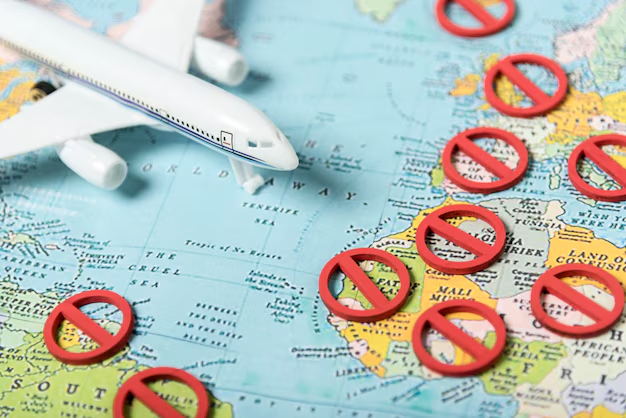In today’s globalized world, trekking is easier than ever, but as current years have demonstrated, it is not constantly precise. Whether due to health crises, environmental crises, political fluctuation, or other factors, travel restrictions resume to affect plans across the globe. If you’re arranging a trip, it’s critical to stay aware of the latest procedures that could impact your dream and travel.
What Are Travel Restrictions?
Travel restrictions refer to rules or regulations levied by governments or health controls that hold who can enter or exit a country or region, and under what cases. These conditions can range from whole bans on travel to specific conditions like quarantine, vaccination proof, or negative test results. In many circumstances, restrictions can change suddenly, making it demanding for travelers to adjust their plans.
Types of Travel Restrictions
There are several types of travel restrictions that travelers may encounter:
- Border Closures: Some governments may close their borders entirely to certain ethnicities or even all foreign visitors, often in reply to health crises, like the COVID-19 pandemic, or political tensions.
- Quarantine Requirements: Many countries require travelers to quarantine for a set number of days upon appearance, particularly if they are arriving from areas with high infection rates or other public health concerns.
- Vaccine and Testing Mandates: In a step to curb the spread of diseases, several nations now require visitors to provide proof of vaccination or present negative test developments, often taken within a precise time frame before leaving.
- Regional or Local Restrictions: Even within a country, there can be varying levels of travel restrictions. Certain provinces might be under lockdown or have more stringent rules due to localized outbreaks or natural catastrophes.
- Travel Advisories: Countries often issue travel advisories, warning their citizens against crossing to certain destinations due to security concerns, environmental hazards, or health threats. While not legally critical, these advisories can have meaningful implications for insurance scope or airline policies.

The Impact of Travel Restrictions
Travel restrictions can be a basis of frustration and financial loss for travelers. Hasty changes can lead to balanced flights, lost reservations, and the need to rebook at higher costs. Beyond the personal inconvenience, these constraints have had a profound impact on the global tourism industry, leading to decreased revenue for hotels, airlines, and local industries dependent on tourists.
For business travelers, restraints can disrupt important summits, international deals, and overall monetary cooperation. The anticipation around travel limitations can make it hard to plan long-term, which concerns both time-out and business travel.
How to Remain Announced About Travel Restrictions
- Check Government Websites: One of the most dependable sources of knowledge on travel restrictions is the official government website of your terminus country. Many nations supply regular updates on border procedures and entry provisions.
- Monitor Airline and Accommodation Policies: Airlines and hotels often acclimate their policies in reaction to changing constraints. Flexible booking options, revocation policies, and travel insurance have evolved critically in providing that plans can be changed without excessive cost.
- Use Travel Apps and Tools: Different apps and websites track real-time travel restrictions across the globe. These tools can supply updates on vaccination conditions, quarantine rules, and other paramount details, helping travelers stay ahead of sudden changes.
- Travel Insurance: To rescue yourself from financial loss, consider purchasing comprehensive travel insurance that covers revocations or changes due to travel restrictions. Some procedures may even offer a range of medical expenses incurred if you fall ill while abroad.
The Future of Travel Restrictions
The terrain of travel restrictions is always evolving. As the world adapts to the lasting results of global health concerns, geopolitical tensions, and environmental crises, it’s likely that conditions will continue to fluctuate. Nevertheless, advancements in technology and international cooperation may direct to more streamlined travel techniques, with digital health passes, real-time search, and improved communication systems to help travelers navigate constraints more efficiently. In the climax, it remain a vital part of multinational travel in 2024, staying knowledgeable and flexible can help mitigate their impact. Always research your terminus’s requirements, prepare for sudden changes, and regard travel insurance to safeguard your plans. The planet may be opening up again, but being organized is key to ensuring smooth and stress-free travel.







